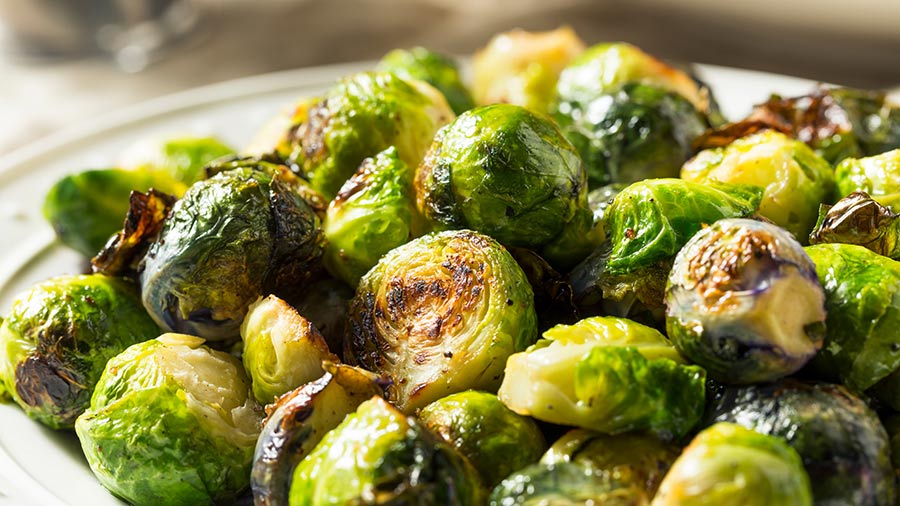Brussels sprouts – everything you ever wanted to know
 © Brent Hofacker/Adobe Stock
© Brent Hofacker/Adobe Stock Ever wondered why brussels sprouts are something of an acquired taste, why it is best to wait until after the first frost before eating them, or why they give us wind?
Lauren Chappell of the University of Warwick’s School of Life Sciences, which is part of the Defra-funded Vegetable Genetic Improvement Network (VeGIN), has assembled the following facts checker.
Brussels sprouts fact checker
- Brussels sprouts growing in the UK cover an area equivalent to 3,240 football pitches.
- If you were to line them all up individually, they’d stretch from London to Sydney.
- Perhaps unsurprisingly, 25% of total sprout sales occur in a two-week window in December.
- Disappointingly, only half of the 750m sprouts produced each year are eaten.
- Sprouts can be traced back to Brussels from the 13th Century, though the name “brussels sprouts” was coined in the 1700s by the French.
- Alongside cabbages, broccoli, cauliflower and kale, brussels sprouts are part of the Cruciferae family – from the Latin word meaning “cross-bearing” – owing to the four coloured petals of these vegetable flowers appearing like a cross.
- Unlike its relatives, the sprout is the only vegetable to grow as a bud from a stem.
- Sprouts are rich in vitamins and minerals, and even contain anti-cancer and anti-inflammatory properties.
- They also contain a sugar called raffinose, which the human body can’t digest, instead producing lots of gases.
- Sulphur is responsible for the bitter sprout taste, but as we age, we lose taste buds, which can make them more palatable – which is why adults who hated sprouts as children now embrace them in seasonal dishes.
- Frosty weather converts bitter starches into sugars, leading to sweeter tasting sprouts, hence the logic behind grandparents remarking they “won’t eat sprouts until the first frost”.
- Sprouts contain a chemical, similar to phenylthiocarbamide, which only tastes bitter to people who have a variation of a certain gene. About 50% of the world’s population have that mutation.
- Modern breeding methods, including those used at the University of Warwick, can help to make brussels sprouts more palatable.
See more
